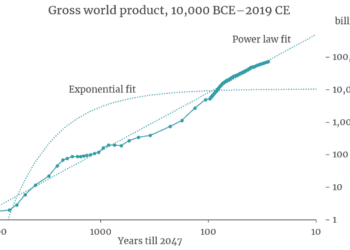In the sprawling, interconnected world of the 21st century, a quiet transaction occurs billions of times a day. With every click, search, share, and purchase, we trade fragments of our personal lives for convenience and connection. The old adage, “If the service is free, you are the product,” has never been more accurate, yet it barely scratches the surface of the reality. You are not just the product; you are the raw material, the data point, and the target in a multi-trillion-dollar surveillance economy that operates silently in the background of our digital existence.
This pervasive data collection, carried out by tech behemoths, shadowy data brokers, advertisers, and even governments, has created a state of near-total digital transparency for the average citizen. But this is not a reason for despair; it is a call to action. While achieving perfect, untraceable anonymity is a goal reserved for spies in fiction, reclaiming a significant and meaningful degree of digital privacy is not only possible but essential for personal autonomy and security.
This guide is your comprehensive blueprint for building a robust digital defense. We will move beyond simple tips and delve into the powerful tools and strategic habits that can create a formidable shield around your personal data. From the foundational layers of secure Browse to the advanced fortifications of encrypted communication, this is your ultimate guide to taking back control.
The Surveillance Machine: Understanding Who is Watching and Why
Before we can build our defenses, we must understand the landscape of the threat. Digital surveillance is not a single entity but a complex ecosystem with multiple actors, each with its own motivations.
A. The Titans of Corporate Surveillance The most visible data collectors are the tech giants that mediate our digital lives: Google (Alphabet), Meta (Facebook, Instagram, WhatsApp), Amazon, and others. Their business model is predicated on knowing as much about you as possible to build hyper-detailed user profiles. This data is used for:
- Targeted Advertising: The primary engine of their revenue. By knowing your age, location, interests, recent purchases, and even your mood, they can sell advertisers a direct line to your attention.
- Behavioral Prediction: Their algorithms are designed to predict and influence your future behavior, from what you’ll buy next to what content will keep you engaged on their platform the longest.
- Product Development: Your data helps them refine their services and develop new ones, ensuring their continued dominance. They gather this information through tracking cookies that follow you across the web, pixels embedded in other websites, location data from your smartphone, analysis of your emails and messages, and the content you willingly provide.
B. The Invisible Market of Data Brokers Operating in the shadows behind the tech giants is a vast and largely unregulated industry of data brokers. Companies like Acxiom, Experian, and Oracle Data Cloud are data aggregators. They buy data from thousands of sources—app developers, online retailers, public records, and even your ISP—and combine it to create incredibly detailed dossiers on billions of people. These profiles, which can contain thousands of data points from your income level and health concerns to your political affiliation, are then sold to other companies for marketing, risk assessment, and background checks, all without your direct knowledge or consent.
C. Internet Service Provider (ISP) and Government Monitoring Your Internet Service Provider (the company you pay for Wi-Fi) is the gateway through which all your online activity flows. Unless that traffic is encrypted, your ISP can see every website you visit, how long you stay there, and who you communicate with. In many countries, ISPs are legally required to log this data and provide it to government and law enforcement agencies upon request.
Understanding this three-pronged surveillance architecture—corporate, commercial, and governmental—is the first step. It clarifies that privacy isn’t about hiding from a single entity but about protecting your data from a complex, interlocking system.
The Privacy Starter Kit: Your Foundational Defenses
Building digital privacy is like building a fortress. You must start with strong outer walls before furnishing the inner chambers. These foundational tools are your non-negotiable first line of defense.
A. The Virtual Private Network (VPN): Your Encrypted Tunnel A VPN is arguably the single most important privacy tool for the average user.
- What It Is: A VPN is a service that creates a secure, encrypted connection—a private tunnel—between your device and the internet. All your traffic is routed through a server operated by the VPN provider.
- How It Protects You:
- It Hides Your IP Address: Your IP address is a unique identifier that reveals your approximate physical location. By routing your traffic through its server, a VPN masks your real IP with its own, making it much harder for websites and trackers to pinpoint you.
- It Encrypts Your Connection: This is its most crucial function. The strong encryption prevents your ISP from seeing which websites you visit. This is especially vital when using public Wi-Fi (e.g., at cafes, airports), which are notoriously insecure and rife with snoops.
- What It Does NOT Do: A VPN is not a magic invisibility cloak. If you are logged into your Google account while using a VPN, Google still knows it’s you. It does not block all ad trackers (though some VPNs offer this as an add-on feature).
- Choosing a Good VPN: Look for three key features: a strict no-logs policy (audited by a third party, if possible), a kill switch (which automatically cuts your internet if the VPN connection drops), and a headquarters in a privacy-friendly jurisdiction (outside the 5/9/14 Eyes surveillance alliances).
B. The Password Manager: The Keeper of Your Keys The weakest link in most people’s digital security is their passwords. Using simple, repeated passwords across multiple services is an open invitation for disaster.
- The Problem: The human brain is not designed to remember dozens of unique, 20-character alphanumeric passwords.
- The Solution: A password manager is a highly secure digital vault that generates, stores, and fills in strong, unique passwords for every online account you have. You only need to remember one strong master password to unlock the vault.
- The Non-Negotiable Add-On: Two-Factor Authentication (2FA): 2FA adds a critical second layer of security. Even if a hacker steals your password, they cannot access your account without a second piece of information—typically a time-sensitive code from an authenticator app on your phone. Enable 2FA on every service that supports it, especially email and financial accounts.
C. The Private Browser and Search Engine: Navigating Without a Trace The browser is your primary window to the web, but default browsers like Google Chrome are designed to facilitate data collection.
- Privacy-Focused Browsers:
- Brave: Built on the same foundation as Chrome, Brave offers a familiar experience but with a powerful, built-in ad and tracker blocker enabled by default.
- Firefox: A long-standing, open-source browser from the non-profit Mozilla Foundation. Its “Enhanced Tracking Protection” feature, when set to “Strict,” blocks a wide range of cross-site trackers.
- Private Search Engines: Using a private browser is only half the battle if you continue to use a search engine that profiles you.
- DuckDuckGo: The most well-known private search engine. It does not log your searches or create user profiles.
- Startpage: Offers Google’s search results but anonymizes your query, acting as a privacy-preserving middleman between you and Google.
Advanced Fortifications: Securing Your Communications

Once your foundational walls are in place, it’s time to secure the content of your conversations. Standard email and text messages are shockingly insecure.
A. Encrypted Messaging: Speaking in Secret
- The Problem: Traditional SMS texts are unencrypted. Your mobile carrier can see their content. Mainstream chat apps like Facebook Messenger are typically not end-to-end encrypted by default.
- The Gold Standard: End-to-End Encryption (E2EE): E2EE is a system where a message is scrambled on the sender’s device and can only be unscrambled on the intended recipient’s device. The service provider in the middle cannot read the message, even if they wanted to.
- Recommended Tools:
- Signal: Widely considered the gold standard for secure messaging. It is free, open-source, and operated by a non-profit foundation. It uses a robust E2EE protocol and collects the absolute minimum amount of user metadata.
- WhatsApp: While it uses Signal’s excellent E2EE protocol, its ownership by Meta raises significant concerns about the collection of metadata (who you talk to, when, for how long), which is not encrypted.
B. Encrypted Email: Sealing Your Digital Mail Standard email (like Gmail or Outlook) is fundamentally insecure. Think of it as sending a postcard—anyone at the postal service who handles it can read its contents.
- The Solution: Encrypted email providers build E2EE into their platforms.
- Recommended Tools:
- ProtonMail: Based in Switzerland, ProtonMail is a leader in the secure email space. Emails between ProtonMail users are automatically end-to-end encrypted. For sending an encrypted email to a non-user, it allows you to set a password.
- Tutanota: A German-based alternative that also offers strong E2EE for all internal communications and provides easy options for encrypting messages to external recipients.
The Anonymity Layer: When Privacy is Not Enough
For journalists, activists, or anyone needing the highest level of protection from targeted surveillance and pervasive tracking, there is the Tor network.
- What It Is: Tor (The Onion Router) is a free, global, volunteer-operated network that anonymizes your internet traffic. It works by wrapping your data in multiple layers of encryption (like the layers of an onion) and bouncing it through a random series of relays around the world. Each relay only knows the previous and next stop, so no single point in the chain knows both who you are and what you are accessing.
- How to Use It: The easiest way to access the network is through the Tor Browser, a modified version of Firefox pre-configured for maximum security and privacy.
- The Purpose: Tor allows users to circumvent censorship, protect their identity from powerful adversaries, and achieve a level of anonymity that no other tool can provide.
- Important Caveats: Tor is not a silver bullet. It is significantly slower than a normal connection. To maintain anonymity, users must practice strict operational security and avoid logging into personal accounts or revealing identifying information while using the browser.
The Human Factor: Privacy is a Habit, Not Just a Product

Tools are only as effective as the person using them. Cultivating strong privacy habits is the final, crucial piece of the puzzle.
A. Conduct a Digital Footprint Audit Periodically search for your own name online to see what information is publicly available. Use services like DeleteMe or Kanary to automatically find and remove your personal information from hundreds of data broker websites.
B. Scrutinize App Permissions Be ruthless with app permissions on your smartphone. Does that game really need access to your microphone and contacts? If the permission is not essential for the app’s core function, deny it.
C. Practice Data Minimization The simplest way to protect your data is to create less of it. Think twice before sharing personal information on social media. De-identify photos before posting them. The less you put out there, the less can be used against you.
D. Master Your Privacy Settings Set aside time to go deep into the privacy and security settings of your Google, Meta, and other major accounts. Turn off location history, ad personalization, and any data collection features that are not essential.
Privacy as an Act of Digital Freedom
Reclaiming your digital privacy in the modern world is not a single destination but an ongoing journey. It is a conscious act of resistance against a system designed for mass surveillance. By adopting a layered approach—building a strong foundation with VPNs and password managers, fortifying communications with encryption, and cultivating mindful digital habits—you can carve out a meaningful space for personal autonomy.
Privacy is not about having something to hide. It is about having the power to choose what you reveal, to whom, and on your own terms. It is the freedom to explore ideas without judgment, to have private conversations without fear of eavesdropping, and to exist as an individual rather than a mere data point. Every tool you adopt and every habit you change is a vote for that freedom.












